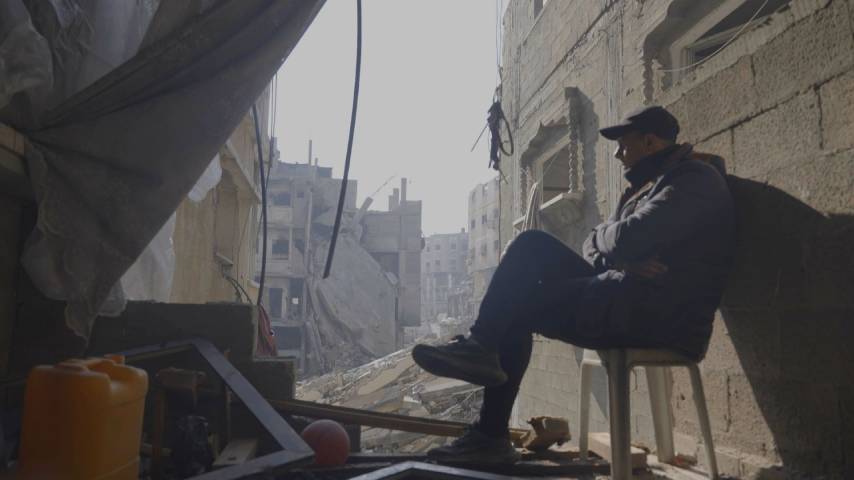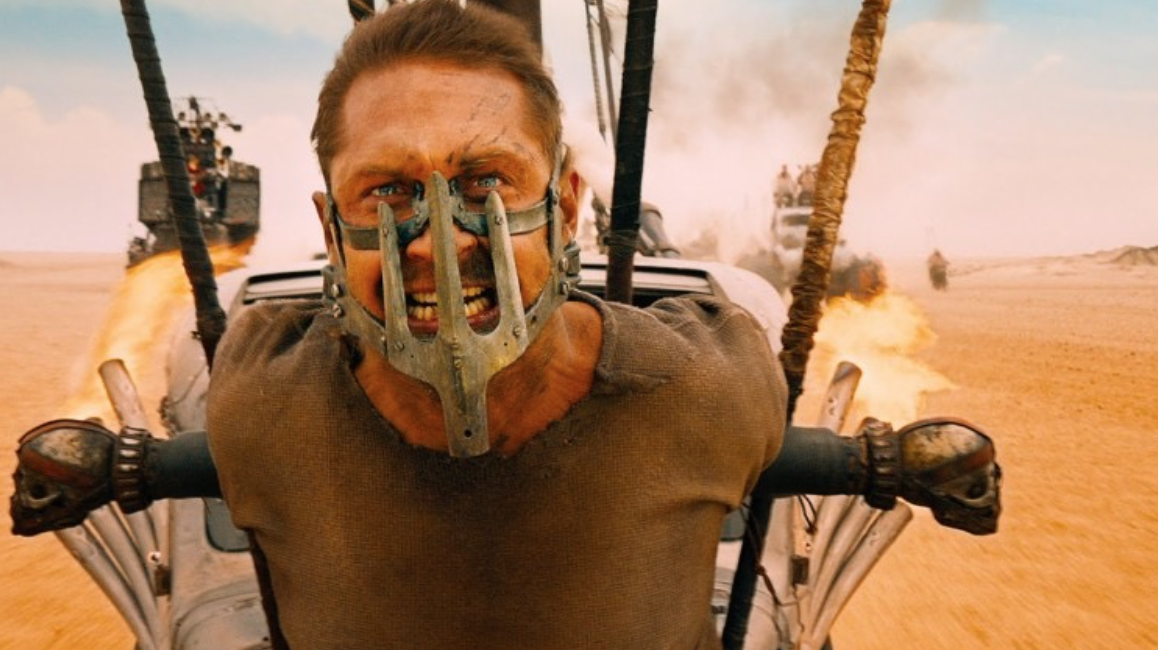Gaza’s Filmmakers Stand Together In Disparate Dispatches From Ground Zero

Filmmakers from Gaza combined 22 short films, produced entirely under IDF siege, into the two-hour From Ground Zero, less a war documentary than a collage of survival. Curated by director Rashid Masharawi—who, after Cannes recanted its invitation for the film, screened the shorts in a tent outside the festival’s grounds in protest—these bursts of individual creativity speak to a larger communal resilience as they traverse genres. An inherently uneven project, its segments range from serious documentary to cheesy dramedy to crushing slice-of-life, all variously inspired by the editing and shooting styles of Hollywood, Indian soap opera, TikTok, and citizen journalism. Together, this showcase colors every facet of its makers’ shared plight, the disparate dispatches building into collaborative nonfiction.
Where No Other Land found universality in its extended, chronological narrative about one Palestinian village’s persistence through its targeted demolition by Israel, From Ground Zero finds its specificity by approaching a larger-scale attempt at eradication from every angle. Regardless of topic or tone, none of the films can escape their setting: Refugee encampments of multicolored tarps and tents, surrounded by grey concrete rubble and rusted, snarled rebar. The washed-out palette and destroyed surroundings make every human subject pop against the residue of violence. Dirt, dust, rock, sand, blood.
When bombed down to its base elements, everything looks the same. That includes bodies. This is why one moving segment, the stop-motion "Soft Skin" from Khamis Masharawi, focuses on parents writing their children’s names on their limbs so they can be identified after they’re inevitably killed in an airstrike, and the nightmares this process inspires. One of the more assured films in the anthology, "Soft Skin" uses its lo-fi production to its advantage, the jerky animation evoking the surreality lived by its young subjects. Mahdi Kreirah’s food-can puppets in "Awakening" similarly bake scrappy production materials into the film’s text, grounding its tale of amnesia and history’s repetition in the tangible loss of the present.
These two entries are considerably separated over the course of the film, just one example of From Ground Zero’s sporadic nature. The shorts don’t seem to be grouped in unifying arcs or by tonal connections, with black-and-white abstractions following straightforward interviews. This can be frustrating, sharpening that double-edged anthology sword: If one short doesn’t resonate, another will start up in about five minutes. But if one does land, you only have a few moments with it before it leaves you to roll the dice with another. With little in way of organization, From Ground Zero can oscillate frustratingly between styles, artistic ambition, and production quality.
But whether filmed with professional equipment or (more commonly) phones, the segments refine their sense of place through their shifting perspectives. That so much persists between the different tones casts the mundanity of daily life in neon, a bright sign screaming that this never should have become normal. Foraging, wood chopping, water boiling, searching for loved ones, standing in endless lines. Being a refugee is tedious. Exhausting. Each film is plagued by this nervy monotony, which forms the foundation under which runs a contradictory current of assured uncertainty: Everyone is in constant danger, and it could come at any time. It keeps those forced to live like this sleepless and frayed, infusing their basic narratives with confusion and bewilderment. It turns routine dramas into aching memories and dreamy reminiscences, slices-of-life into mysteries. Through this diversity, the corners of this crisis light up. Immersion becomes teleportation.
Adding to this diversity, the films aren’t all tragedy. Expressions of joy, music, and dance brighten the collection, but they are explicitly defiant against the status quo of suffering. Streaks of black humor burn like acid; Karim Satoum’s "Hell's Haven" soundtracks its absurd sleeping bag/body bag visual pun with cacophonous drums.
But, mostly, From Ground Zero is an expectedly harrowing watch, sharpening its pain into pointed details. A little girl relates, during an art therapy class, that her one-year-old brother only knows two ways to communicate: the word “daddy” and the sound of an ambulance. Alaa Damo’s film "24 Hours" is an interview intercut with footage of its subject, right next to the corpse of his cousin, being rescued from underneath feet of debris—the first in a series of rescues during a single 24-hour period. Though less explicit, the unfinished "Taxi Waneesa" is perhaps the most affecting. The short abruptly cuts to a statement from director Etimad Washah about the death of her brother during filming, which derailed production and made her planned ending moot in light of the tragedy at hand. This candidness, a vulnerable choice shocking in how obvious it feels in retrospect, only makes the other films feel more miraculous for their completion.
From Ground Zero often feels more miraculous than anything else, impressive in its mere existence. That these filmmakers could create under their conditions is staggering. That so many did makes the film an intimate snapshot of life in Gaza. In one of the final shorts, a fine artist displays some sketches in her bombed-out apartment. “This project was my hope of being recognized at a university,” she says, “but they blew up the university two weeks ago.” The institutions are gone, the people displaced. But in these films, their dreams persist.
Directors: Aws Al-Banna, Ahmed Al-Danf, Basil Al-Maqousi, Mustafa Al-Nabih, Muhammad Alshareef, Ala Ayob, Bashar Al Balbisi, Alaa Damo, Awad Hana, Ahmad Hassunah, Mustafa Kallab, Satoum Kareem, Mahdi Karera, Rabab Khamees, Khamees Masharawi, Wissam Moussa, Tamer Najm, Abu Hasna Nidaa, Damo Nidal, Mahmoud Reema, Etimad Weshah, Islam Al Zrieai
Starring: Alaa Nijim, Aws Al Banna, Kamel Mohammad, Karim Satoum, Kenzi Al Balbisi, Nidal Damo, Thaer Abu Zubaida, Yahya Saad
Release Date: January 3, 2025


